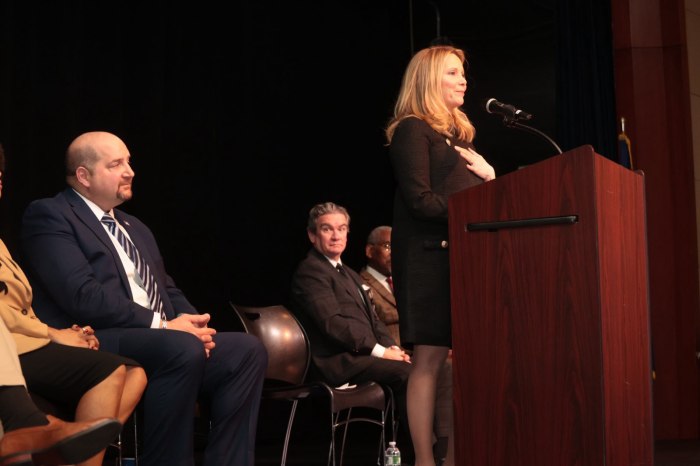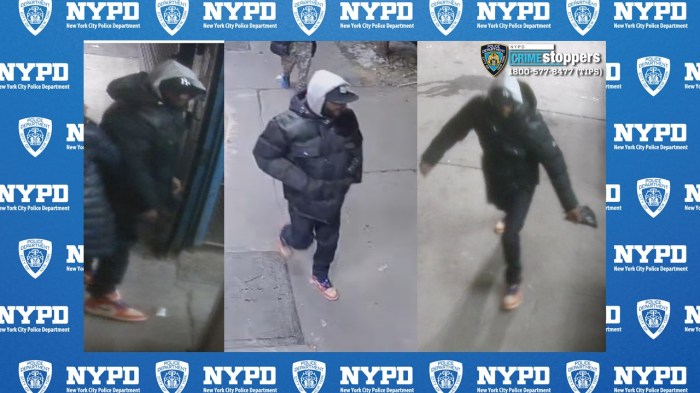By Joaquin Sapien, ProPublica
When Anna Frank lost custody of her 9-year-old son, she blamed her husband and the judge who decided the case in his favor.
She also faulted Barbara Burkhard, a psychologist appointed to evaluate the family and advise the court on the matter. According to Frank, Burkhard concluded—after meeting Frank once and without interviewing her son—that their claims of abuse were invented and that Frank had poisoned her child against his father.
Frank ultimately regained custody of her son, based partly on testimony from other psychologists who disputed Burkhard’s contentions. But before she did, she sought sanctions against Burkhard from the agency that oversees licensed psychologists in New York.
Frank’s densely detailed, 12-page complaint to the Office of Professional Discipline was never investigated, let alone acted upon.
“Due to our inability to access records or discuss the services rendered with this psychologist, we are unable to investigate this matter or to initiate disciplinary action based upon your complaint,” a letter from the office, from the spring of 2012, explained. “I am sorry we cannot be of more assistance to you.”
The office’s response was typical, a ProPublica examination shows.
Though psychologists who appear in New York’s Family and Matrimonial Courts help shape decisions of grave consequence—from custody to child protection to juvenile delinquency—their work is subject to little or no professional oversight, purportedly because the confidentiality of such proceedings makes them hard to penetrate even for regulators.
Several lawyers who have represented parents in such court cases say they and their clients have received similar responses when they’ve tried to pursue complaints against court-appointed psychologists with OPD.
“They rely upon a bureaucratic Catch-22 to avoid having to take a hard look at misconduct and take their responsibility of oversight seriously,” said Timothy Tippins, who wrote a 2016 article for the New York Law Journal on inadequate oversight of such evaluators. “You can’t make this bureaucratic bullshit up.”
Pace University law professor Merril Sobie, a former chair of the New York State Bar Association’s Committee on Children and the Law, has pressed OPD on what recourse exists for families who challenge the competence or objectivity of the psychologists in their cases. The agency has provided few answers.
“It’s a black hole,” Sobie said.
When ProPublica asked OPD several months ago to explain why it did not investigate complaints against psychologists working in family and matrimonial courts, officials responded with little more than a description of the office’s mandate and staffing. They declined requests for interviews.
This month, when we pressed again, the office—an arm of the New York Department of Education—issued a short statement indicating it was seeking more authority to gather information in such investigations:
“The State Education Department investigates every complaint that alleges conduct constituting professional misconduct through its Office of Professional Discipline,” the statement said. “The Department’s ability to investigate court-appointed psychologists can be hampered because the records necessary to pursue such an investigation are, by law, private and open to inspection only upon permission of the Family Court. To help eliminate this potential obstacle to a thorough investigation, the Department is discussing with the New York State Legislature amendments to the law that would give our professional conduct officers greater access to court records. We will continue to pursue such an amendment this legislative session.”
Without intervention by OPD, there’s virtually no place to take complaints against court evaluators.
Since 2008, New York City’s Appellate Court has had a committee that certifies the just over 200 psychologists and psychiatrists who get court appointments and can adjudicate complaints against them. Through June 2015, it had received 10 complaints and issued two admonitions.
But while the committee can bar problem practitioners from testifying in court, it has no authority over psychologists’ licenses. Moreover, court systems elsewhere in the state haven’t set up such committees, partly out of fear that certification requirements might dissuade qualified professionals from taking appointments in regions where practitioners are difficult to find.
“They didn’t want to put things in the way of getting people to do this work,” said Jacqueline Silbermann, a former top New York Matrimonial Court judge who was involved in setting up the city’s certification committee and pushed courts outside the city to do the same. “The bottom line is they didn’t.”
That leaves OPD, whose investigators are tasked with responding to complaints not only about the state’s nearly 14,000 licensed psychologists, but nearly 50 other kinds of professionals, from dentists to massage therapists.
The agency, also known as the Office of the Professions, has come under fire before for its weak enforcement. A 2016 ProPublica investigation found it had not implemented criminal background checks for nurses that are routine in other states and often took years to administer discipline. Critics say it is also impeded by its unusual structure. As part of the Department of Education, OPD comes under the state’s Board of Regents, whose primary responsibility is to oversee the state’s vast public education system, and needs board approval to impose its stiffest sanctions.
But in the case of Family and Matrimonial Court psychologists, OPD’s oversight is not so much flawed as it is absent entirely.
Since 1994, according to a review by ProPublica, only one evaluator who is today approved for court work in New York City has been disciplined by the state, and it is unclear whether that action had anything to do with work he may have done for the courts. Since Family and Matrimonial Court evaluators elsewhere in the state aren’t certified, it’s impossible to know if any have been disciplined.
At a 2012 public hearing, Nancy Erickson, one of the attorneys who represented Frank, called OPD’s approach to overseeing psychologists one of the court system’s most troubling aspects.
“This refusal of OPD means that psychologists who are incompetent or even corrupt can continue to make money by doing custody evaluations that could end up misleading the courts and harming children and their families,” she said.
The tumultuous saga of the Frank family provides as good a window as any into court evaluators’ pivotal role in custody cases.
Anna Frank had filed for divorce in 2007 in Suffolk County Supreme Court, which handles matrimonial matters. She says her husband of 16 years, Michael Frank, was prone to screaming fits and physical aggression. Police records show she called local officers to complain of physical abuse several times as the marriage unraveled. Each parent had had the other arrested over domestic disputes. Their young son allegedly bore witness to their violent fights and later said he, too, suffered abuse at the hands of his father.
Michael Frank denies ever abusing either his wife or son, and insists the police reports were based on false allegations.
Anna Frank, though, did get a one-year order of protection against her husband and sought to dissolve the marriage. The Franks then came before Suffolk County Supreme Court Judge Andrew Crecca, with Anna seeking custody of her son, child support, and what she deemed her share of the family’s finances and Michael, the primary breadwinner, seeking to protect his assets and gain full custody of his son himself.
To sort through the competing accusations, the judge appointed Barbara Burkhard. Burkhard’s company, Child and Family Psychological Services, P.C., had provided therapeutic services to children since 1999 under a contract with Suffolk County’s Department of Social Services. (Burkhard did not respond to repeated emails and phone messages regarding this story.)
In the Frank case, Burkhard started out in 2008 functioning as what’s known as the Franks’ “parenting coordinator,” where she would oversee transfers of the child by his warring parents.
Then Judge Crecca took the somewhat unusual step of appointing Burkhard to complete a forensic psychological evaluation of the family. Normally these roles are kept separate in order to avoid preconceived notions on the part of the evaluator.
In January 2009, Burkhard was part of a chaotic dispute involving the Franks. Anna was supposed to drop her son off at Burkhard’s office so he could be picked up by Michael. But he refused to get out of her car. Burkhard tried to speak with the boy in the car. He was crying, yelling, telling her he did not want to go. He said his father had abused him, sexually and physically. When the boy’s father arrived, he, too, tried to talk to him in the car. In a terror, the boy got out of the car and darted across a busy street. With some coaxing from Burkhard’s staff, the boy came back and embraced his mother, insisting he go home with her. The police arrived and questioned everyone at the scene and the boy went home with his mother.
Based on what she saw, Burkhard recommended in a “preliminary report” that the boy be removed from his mother’s care immediately. She determined that what the boy needed most was more time with his father, outside of his mother’s sphere of influence. She recommended that Michael Frank receive temporary, sole custody while the divorce proceedings progressed. The judge followed her recommendation.
Anna Frank felt the actions were unfounded and unfair and that the court had essentially awarded sole custody to her husband based on a single episode. Burkhard never interviewed her, or her son, and now, in Anna Frank’s view, the psychologist was putting him in harm’s way.
And according to court records, the boy did suffer. His behavior and state of mind deteriorated after that. Usually a strong student, his grades began to decline. Rather than completing assignments, he’d scrawl all over them that he wanted to see his mother. He complained to teachers and social workers that his father had beaten him with a belt and locked him in a basement. His behavior grew increasingly erratic. He tried to run away. He broke windows. He urinated and defecated around the house. Social workers with Child Protective Services became a regular presence at the boy’s home, but their reports echoed Burkhard’s belief that Anna Frank was encouraging the boy to make false allegations of abuse.
Burkhard, in report after report, told the court the boy had become “enmeshed” with his mother, potentially succumbing to something akin to what’s known as “Parental Alienation Syndrome.” Burkhard’s reports suggested his mother may have convinced him to make up abuse allegations, in order to heighten her chances of winning custody.
Burkhard had the boy evaluated by more mental health professionals, and Judge Crecca decided the boy should be removed from both parents and live at a residential treatment center called Little Flower, in Wading River, about 30 minutes from where the Franks lived. He first came to the home in December 2009.
Over the next few years, Frank said she spent every penny she had battling her husband in court to get her son back. She lost her job as a school psychologist after Child Protective Services filed a neglect charge against her—deeming her responsible for her boy’s fear of his father. The school, she said, decided she couldn’t work with children with such a charge pending against her.
“They tried to strip me of everything I cared about,” Frank said, in a recent interview. “It was devastating.”
She said she supported herself by taking jobs in retail, making a meager $10 an hour after growing accustomed to an $80,000 annual salary.
She said Little Flower came to believe her son was telling the truth about his father all along and helped her regain custody.
In January 2010, Little Flower delivered a report to the court stating that the boy’s relationship with his father remained deeply strained and that his psychiatrist was concerned about the boy’s tales of abuse.
Anna Frank said staff from the home agreed to testify on her behalf, urging the judge to believe the boy. Again, Burkhard weighed in, recommending that if the boy were to leave Little Flower, he should move back in with his father. The home’s staff disagreed. They told the judge if the boy wasn’t going to move in with his mother, he’d be better off in foster care, Anna Frank said.
Ultimately, Michael Frank consented to a settlement that granted custody of the boy to his mother.
In an interview, Michael Frank said he never “abused his son or her, never, never, never.” He said his wife lied in a number of ways: The police reports were false, and Little Flower never took her side. And he claimed Anna lost her job not because of the neglect charges, but because she “stopped showing up to work.”
He said he was the “stable parent.” He said his wife had “brainwashed” their son. He repeatedly cited the fact that she is a trained psychologist, which, as he put it, “gave her plenty of knowledge on how to manipulate young kids. And that’s exactly what she did.”
But by the end, he said he had little choice but to “give up.” He said his son was clearly suffering and their relationship felt irrevocably fractured.
He said Burkhard had handled the case professionally.
“There was no rush to judgment,” he said.
Robert Gallo, one of several court-appointed attorneys who wound up representing Anna Frank over the five-year court battle, told ProPublica that the case, taken as a whole, reflects a dire need for outside oversight:
“I don’t want to sound like I am bashing Burkhard,” he said. “In that case, I thought she was wrong. But I’ve had others where I thought she was right. Take her out of the mix, and a different psychologist may have just looked at the same facts and got a whole different view. Which is why there should be some oversight and some real clear rules. I don’t think anybody is doing that today.”
Anna Frank sure tried.
During the custody battle, she was determined to hold Burkhard accountable for the assessment that helped lead to the loss of her child. She complained to OPD in April 2011.
The agency’s investigators are charged with ensuring “public protection” from “professional misconduct” across a variety of licensed professions. When it comes to psychologists, their complaint process is no different for practitioners doing evaluations for Family Court than for matters such as fraudulent billing or disclosing private medical information that might come up in private practices.
In cases in which OPD’s investigators substantiate complaints, the agency can issue administrative warnings for minor violations or—in more serious cases, which are reviewed by a violations committee—fine or censure licensees.
The committee can also refer cases to the state Board of Regents, which can refer the most egregious cases to the state attorney general for criminal prosecution. The board can also revoke a professional’s license.
Complaints against psychologists are relatively rare and discipline is even rarer. In 2015, for example, 88 complaints were filed against psychologists statewide and OPD issued one warning, two violation decisions, and four regent actions.
But to Erickson, Frank’s lawyer, OPD’s professed unwillingness to even look into complaints about the subset of practitioners acting as court evaluators is particularly problematic.
Erickson brought Frank’s case and several others like it to the state bar association’s Children and Family Law committee, then run by Merril Sobie, in April 2011. OPD seemed to have “a policy against investigating complaints that arise out of a court proceeding,” Erickson told the committee.
She pointed out that complainants had few good options other than OPD. The American Psychological Association, for example, publishes non-mandatory guidelines for forensic evaluations and looks into complaints about practitioners, but has little enforcement power. A “psychologist can simply drop his or her membership,” Erickson said.
Sobie was struck by what he described as OPD’s “hands-off” policy and decided the committee should pursue an explanation for it.
ProPublica obtained Sobie’s subsequent correspondence with OPD and its director, George Ding.
In his first letter, dated December 2011, Sobie described the problems his committee saw in OPD’s handling of complaints about evaluators.
He said complainants were often told to address their concerns to the judge presiding over their custody case, when the judge “would in all likelihood advise the litigant to file a complaint with OPD, the APA, or another office,” Sobie wrote. OPD also advised litigants to write to the court “to release their reports and relevant records” so that it could begin an investigation, a step Sobie said would risk stirring up the “hornet’s nest” by demanding the presence of their ex-spouse after a grueling custody battle.
“The Committee believes that this policy may place many children in danger; unfortunately, no matter how many valid complaints are filed against a court-ordered custody evaluator OPD will not investigate,” Sobie wrote. “An incompetent (or unethical) evaluator could continue to harm children.”
Sobie closed the letter by offering to help Ding develop a better approach. “We would happily assist you in improving procedures to better protect New York’s children,” he said.
Then he waited. And waited.
The New Year came and went. He sent the same letter again in late January 2012.
“We would appreciate the courtesy of a reply,” he wrote.
Still, nothing.
“I was not happy,” he said, recalling his dismay in an interview. “I didn’t think they were fulfilling their responsibility. I didn’t think that was the appropriate way to respond to the state bar association. And they wouldn’t put a goddamn thing in writing.”
The following month, in February 2012, Erickson brought another complaint filed with OPD to Sobie’s committee’s attention.
In this instance, the psychologist—a highly active forensic evaluator based in Brooklyn named N.G. Berrill—was not even appointed by the court. He was retained directly by a man who sought to halt his ex-wife’s unsupervised visits with their children.
According to the complaint, Berrill never contacted the mother and never attempted to question the statements the ex-husband made about himself. And yet he concluded the mother’s relationship with the kids had a potentially damaging effect. Berrill wrote a letter to the court recommending that her visitations with her children be supervised by state social workers from then on. The woman wound up losing custody.
Asked about the Family Court case by ProPublica, Berrill declined to respond to the allegations in the complaint and said in an email he did not want his work “discussed” in this article.
When an investigator with OPD wrote back to the complainant, the responses struck her as bizarre.
The letter said that since the woman herself was “not the parent who requested the report from Dr. Berrill” and since the office could not “interview the children or obtain copies of the necessary records without the consent of the father, this office could not adequately conduct an investigation.”
It also noted that Berrill disclosed the fact that he never spoke to the woman and “the court recognized that fact.”
“It is based on this that the decision was made to close your file.”
Sobie, more alarmed than ever, wrote to Ding again in May 2012.
“It has come to our attention OPD’s policies are perhaps more seriously flawed than we thought,” he said, laying out the details of the complaint.
“The response from OPD is frankly incomprehensible,” he said. “When we wrote our December 1, 2011 letter, we thought OPD took a ‘hands off’ policy only when the licensee was appointed by a court; the current example indicates that even a licensee who is not court appointed will not be investigated.”
Ding never wrote back.
After weeks of prodding, Sobie said he finally got a phone call from him.
“Essentially he said they can’t get involved if it’s a court ordered forensic because of confidentiality,” Sobie said. “I said ‘You are a state agency charged with enforcing professional discipline, I don’t see how you couldn’t do this. Don’t you have subpoena power? I find it very difficult to believe that a judge upon motion of a state agency who is charged with that responsibility would deny the motion. Did you ever do that?’ And of course, they never did that.”
Ding did not respond to questions about Sobie’s version of their back-and-forth.
In 2012, Sobie’s tenure as chair of the Children and Law Committee came to a close. The committee subsequently lost some of its interest in evaluators.
Erickson said she continued to hear from mothers who felt OPD had unjustly dismissed their complaints.
In one such case, a woman was told by an OPD investigator that it found no “evidence sufficient to support taking action against the subject” but then explained that “a request for the official documents and the evaluation was denied by Family Court.”
Once again, OPD had apparently closed an investigation without getting the records it would need to even start it.
That case was featured in Tippins’ law journal article, titled “Custody Evaluators: Where’s the Oversight?”
Tippins, a veteran attorney who has become the go-to expert in how to effectively challenge their work, has written extensively on the topic of oversight. In the article, he declared the OPD’s professed unwillingness or inability to investigate Family Court evaluators to be “as dangerous as it is derelict.”
“Evaluations are often flawed by bias, methodological deficiency, or both,” he wrote. “While many evaluators strive to present reliable expertise, incompetent or unethical evaluators are hardly strangers to the courts.”
He went on to explain that thorough cross examination of evaluators is rare and that cases are often settled on the basis of their work, making outside oversight an absolute imperative.
In his view, OPD provides nothing of the kind.
“If the subject were not so serious, this rigmarole would be worthy of Abbott & Costello,” he wrote.
In his response to Tippins, Ding asserted that his office “investigates every complaint which alleges conduct constituting professional misconduct.”
Ding said he could not supply evidence of the office taking action against a court-appointed evaluator because its data “is not maintained in a manner that is based on the information that you are seeking.”
Tippins’ article helped reinvigorate the bar association committee’s interest.
Ding accepted an invitation to their annual meeting last December.
Finally, Sobie and Erickson thought they might get some answers.
But Ding didn’t show up.
He apologized, saying he got the date wrong, and called in by phone, answering questions for an hour.
According to people who attended the meeting, he stuck to his claim that his office can’t investigate Family or Matrimonial Court cases because it can’t access essential records. Asked if he ever went to court to ask for records, he said he’d done so only once. Someone at the committee meeting noted that Ding could go to the state Attorney General’s office to seek a subpoena. According to those present, Ding said he assumed the attorney general had other priorities.
OPD disputes this version of events, but would not supply details as to what happened.
Ding did call the current head of the Children and Law Committee to complain that someone on the committee had described the meeting to ProPublica. He said it put him in “a very bad position” with the Attorney General’s office.
Sobie said the meeting left him certain of one thing:
“There is no professional oversight.”
ProPublica is a Pulitzer Prize-winning investigative newsroom. Sign up for their newsletter.






























